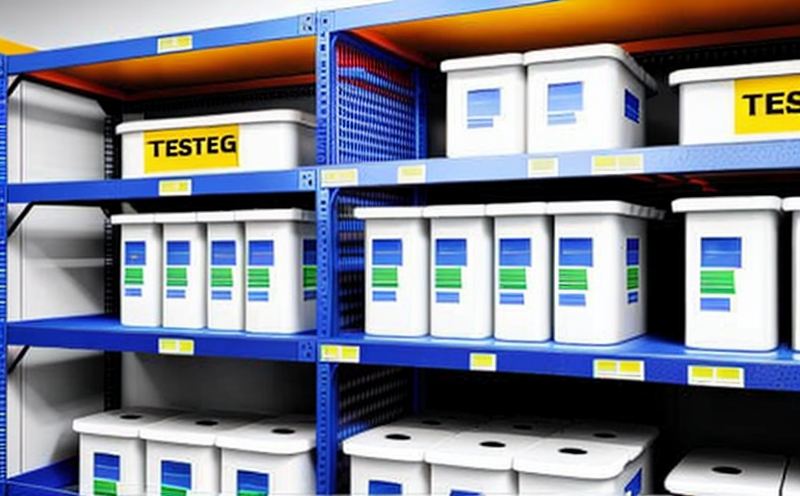Role of temperature in shelf life testing
The Critical Role of Temperature in Shelf Life Testing Why Businesses Cant Afford to Ignore It
In todays fast-paced and highly competitive business landscape, ensuring the quality and safety of products is crucial for success. One key aspect of product development that often goes overlooked is shelf life testing. This laboratory service involves assessing a products stability and longevity under various conditions, including temperature fluctuations. At Eurolab, our team of experts understands the significance of temperature in shelf life testing and its impact on businesses worldwide.
What is Shelf Life Testing?
Shelf life testing is a critical step in product development that determines how long a product remains stable and retains its quality when stored under various conditions. It involves assessing factors such as packaging, storage conditions, and handling practices to ensure the products safety and efficacy over time. Temperature plays a pivotal role in shelf life testing, as it can significantly affect a products stability and longevity.
Why is Temperature Important in Shelf Life Testing?
Temperature affects the chemical reactions within a product, influencing its degradation rate and stability. Extreme temperatures can accelerate or decelerate these reactions, leading to changes in the products texture, taste, appearance, and even potency. By controlling temperature conditions during shelf life testing, businesses can ensure their products meet regulatory requirements, maintain customer satisfaction, and minimize losses due to spoilage.
Advantages of Using Temperature in Shelf Life Testing
The benefits of incorporating temperature control into shelf life testing are numerous and significant
Ensures Regulatory Compliance Adhering to temperature regulations ensures that your product meets international standards and complies with local laws.
Predicts Real-World Conditions Simulating various temperature conditions during testing helps businesses anticipate potential issues in real-world environments, reducing the risk of product failure or customer dissatisfaction.
Optimizes Product Formulation By understanding how temperature affects a products stability, manufacturers can reformulate their products to withstand extreme temperatures, ensuring consistent quality and performance.
Minimizes Spoilage and Losses Controlling temperature conditions during storage helps prevent spoilage, reducing waste, and minimizing losses due to expired or damaged products.
Enhances Product Safety By testing for temperature-related stability, businesses can identify potential hazards and take corrective measures to ensure their product is safe for consumption.
Additional Benefits of Eurolabs Shelf Life Testing Services
At Eurolab, our comprehensive shelf life testing services go beyond just temperature control. Our team offers
Customized Testing Programs We tailor our testing protocols to meet the specific needs of your business and products.
Advanced Analysis Techniques Our state-of-the-art equipment and expertise enable us to conduct a wide range of tests, including microbiological analysis, chemical stability assessment, and texture analysis.
Data Interpretation and Reporting Our team provides clear, actionable insights from test results, enabling you to make informed decisions about product reformulation or packaging changes.
QA Frequently Asked Questions About Shelf Life Testing
Q1 What are the most common temperature-related issues in shelf life testing?
A1 Temperature extremes, such as high temperatures during transportation or storage, can cause products to degrade rapidly. Additionally, fluctuations in temperature can lead to inconsistent product quality and reduced shelf life.
Q2 How does Eurolab ensure that its shelf life testing services are accurate and reliable?
A2 Our team adheres to international standards for shelf life testing, including ISO 2859-1 (Sampling procedures for inspection by attributes) and ISO 3656 (Packaging Determination of the resistance to the transmission of carbon dioxide).
Q3 What is the typical turnaround time for shelf life testing services at Eurolab?
A3 Our standard turnaround time is typically 4-6 weeks, although this may vary depending on the scope and complexity of the project. We prioritize communication with our clients throughout the testing process to ensure that you receive results promptly.
Q4 Can Eurolab provide customized shelf life testing services for unique or niche products?
A4 Yes! Our team has extensive experience in conducting shelf life tests for a wide range of products, including pharmaceuticals, foodstuffs, cosmetics, and industrial materials. We adapt our testing protocols to meet the specific needs of your business.
Conclusion
In conclusion, temperature plays a critical role in shelf life testing, ensuring that products are stable, safe, and compliant with regulatory requirements. By incorporating temperature control into your testing program, businesses can minimize losses due to spoilage, enhance product safety, and optimize formulations for better performance. At Eurolab, our team is committed to providing expert shelf life testing services that meet the unique needs of your business. Contact us today to learn more about how we can help you ensure the quality and stability of your products.
Additional Resources
For further information on shelf life testing or temperature-related issues, visit our website at Your Company Website URL. Stay up-to-date with the latest news and insights from Eurolab by following us on social media platforms.




